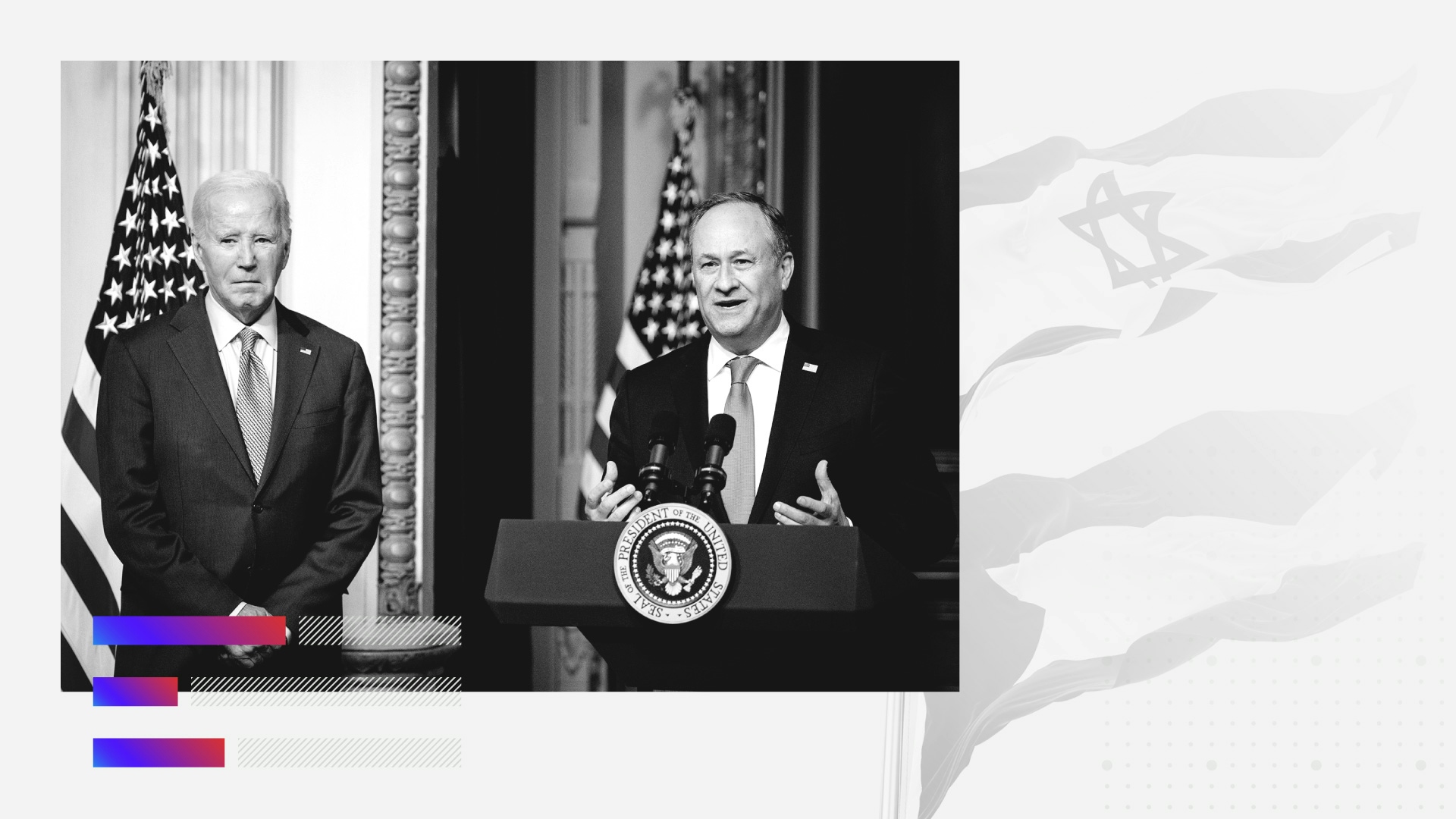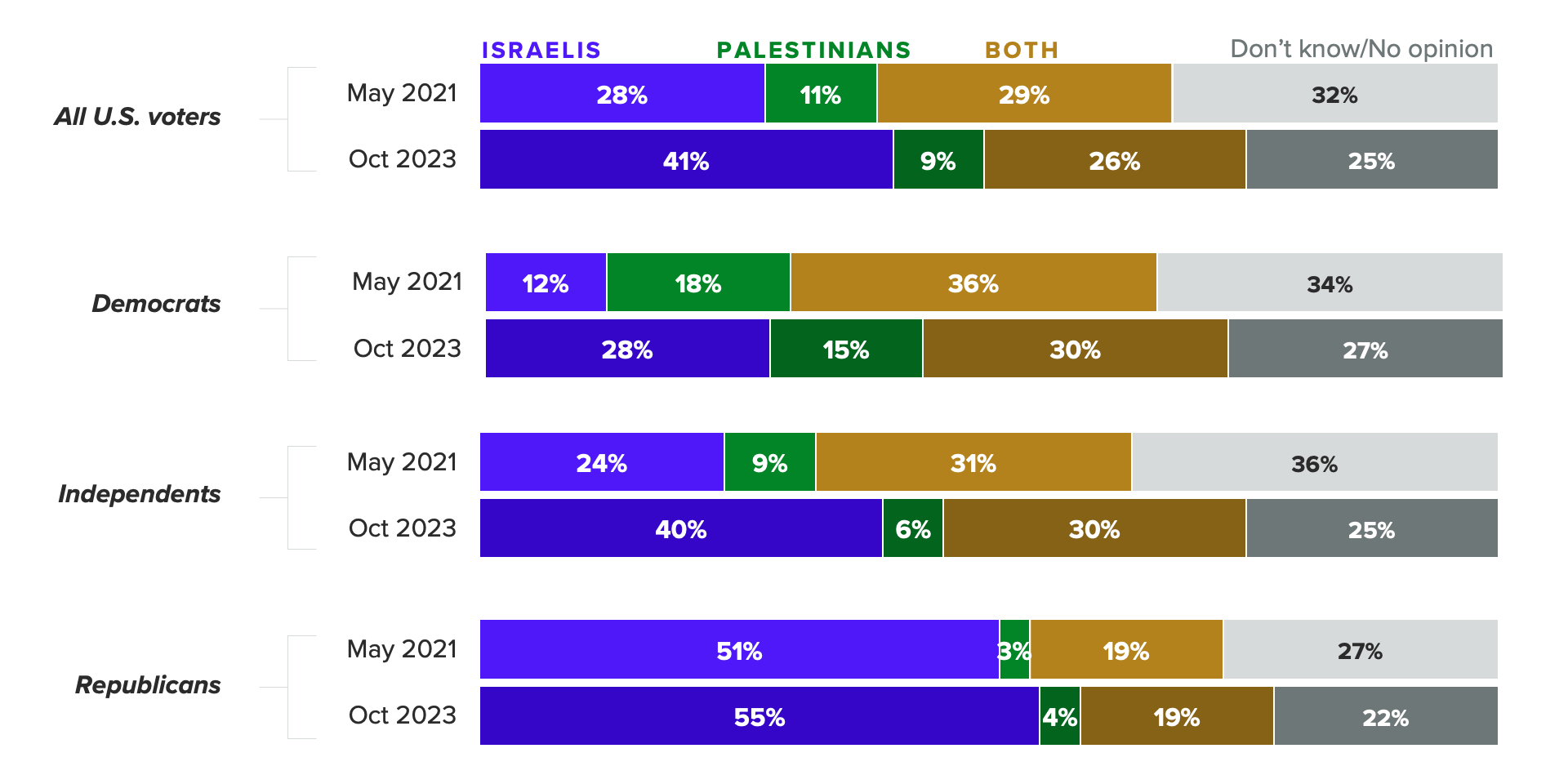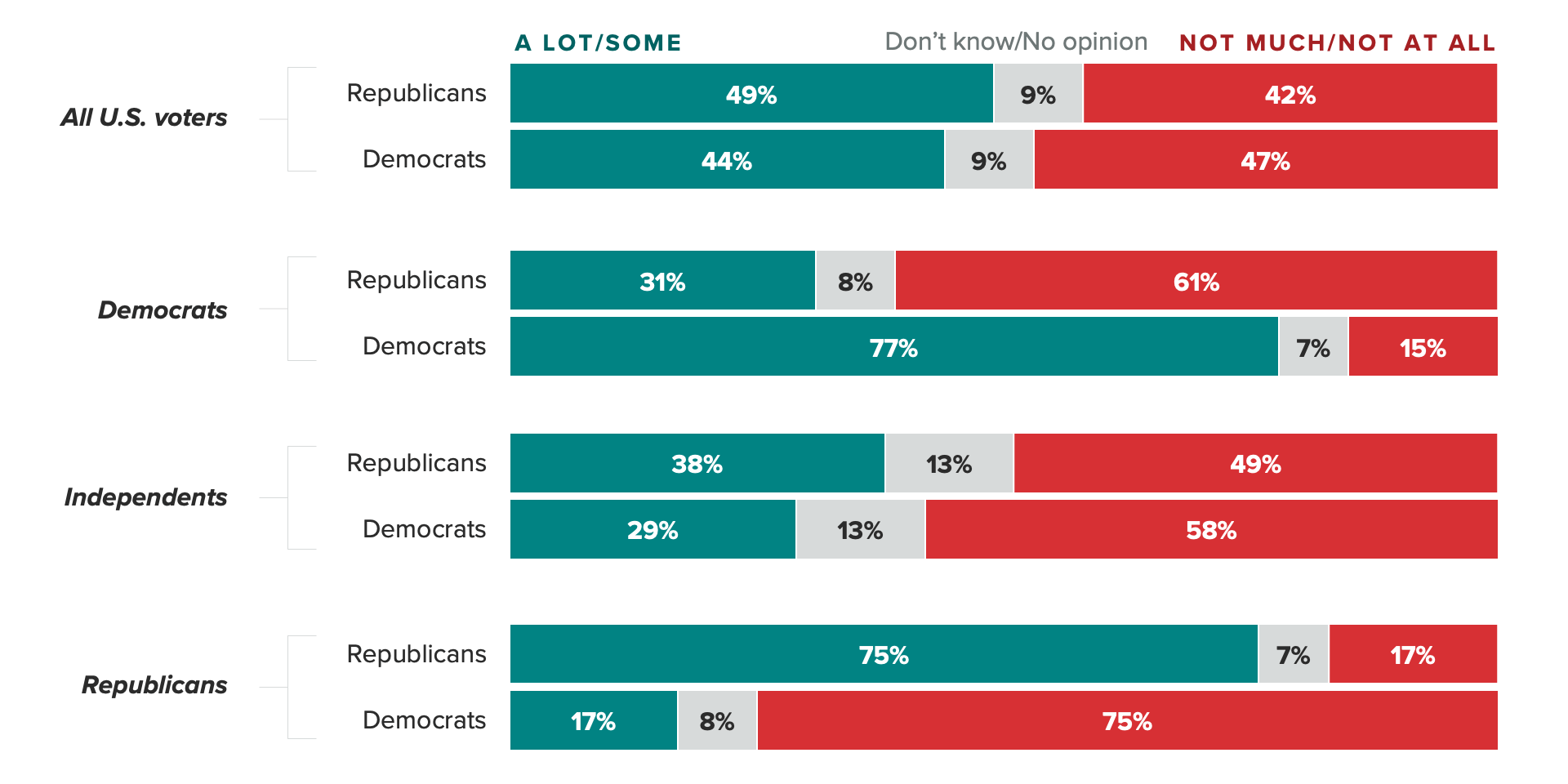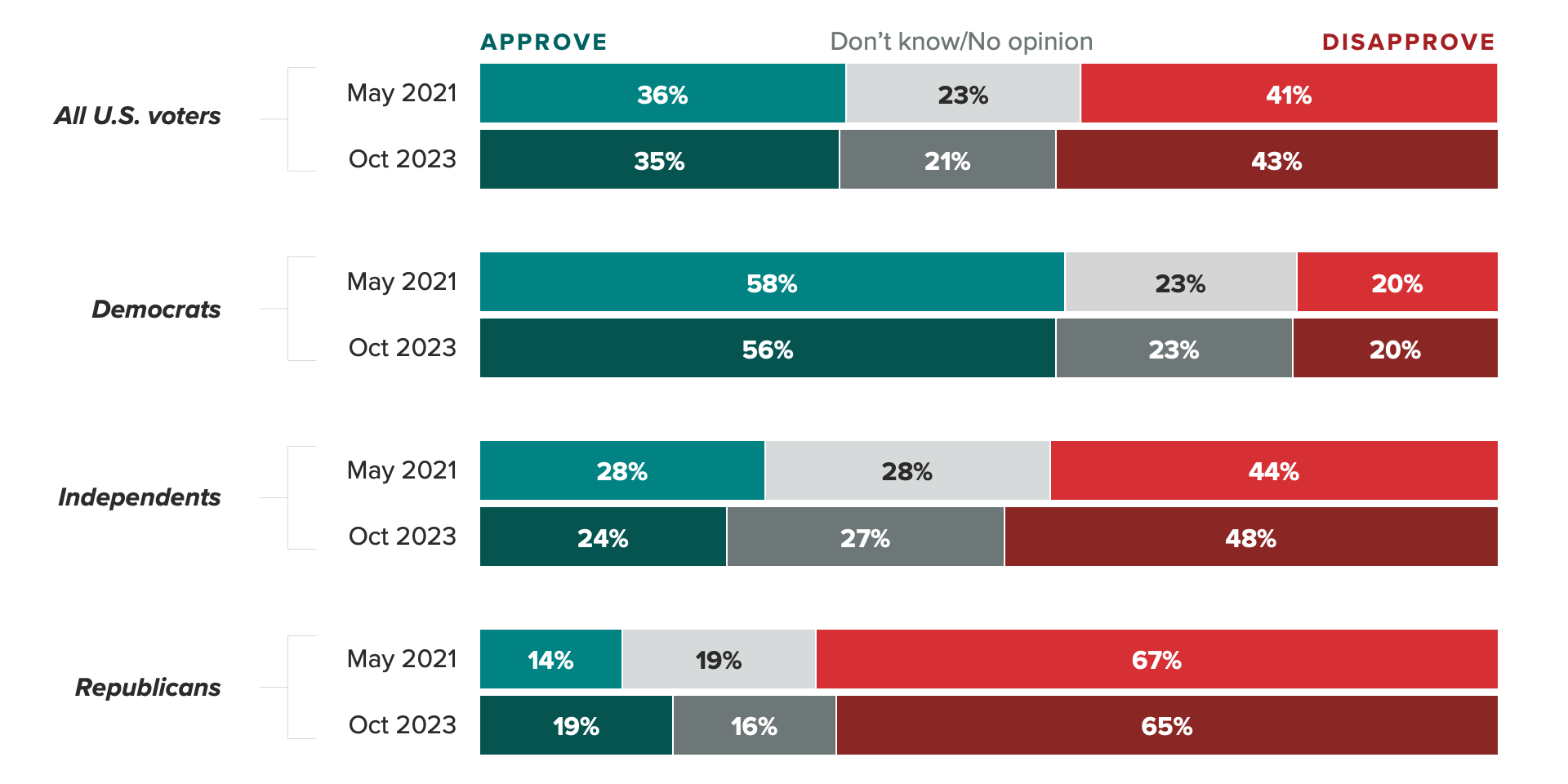Americans’ Sympathies Shift Toward Israel Following Hamas Terrorist Attack

As news coverage proliferates of Saturday’s horrific attacks on civilians in Israel by Hamas militants, a new Morning Consult survey shows American voters are increasingly sympathetic to the Israeli side of the decades-long conflict with Palestinians.
Voters Increasingly Sympathize With Israel Following Hamas’ Attack

According to the Oct. 10-12 survey, 41% of U.S. voters sympathize more with the Israelis than the Palestinians in the long-fought conflict. That’s up from 28% who said the same in May 2021, when Israel’s military and militants from Hamas, the terror group that governs the Gaza Strip, exchanged volleys of rockets and bombs. Most of the uptick in sympathy was driven by newly formed views among Americans.
Sympathy for Palestinians was essentially unchanged over that time frame, driven by marginal declines in sympathy among Democratic and independent voters. The share of voters who said they equally sympathized with both sides saw a similar marginal decline.
Specific demographics at scale: Surveying thousands of consumers around the world every day powers our ability to examine and analyze perceptions and habits of more specific demographics at scale, like those featured here.
Why it matters: Leaders need a better understanding of their audiences when making key decisions. Our comprehensive approach to understanding audience profiles complements the “who” of demographics and the “what” of behavioral data with critical insights and analysis on the “why.”
Republican voters are roughly twice as likely as Democrats to say they primarily sympathize with Israelis, while Democrats are about three times as likely as both Republicans and independents to primarily sympathize with the Palestinians.
The lack of consensus among Democratic voters on the conflict reflects the debate brewing within America’s political left in recent years, tensions that have boiled over in the wake of the latest outbreak of violence in the Middle East. The survey suggests Americans, who are inclined to support Israel in the conflict, have taken notice.
Slightly More Voters Trust Republicans Than Democrats on the Israeli-Palestinian Conflict

By a margin of 5 percentage points, U.S. voters are more likely to trust Republicans than Democrats to handle the conflict. That slim disparity is mostly powered by two dynamics: A 20-point advantage for the GOP among independents, and a nearly 2-to-1 advantage among voters of the opposing party.
And while Republicans may be narrowly favored over Democrats to handle the Israeli-Palestinian conflict, it’s not clear that voters are viewing Biden’s handling of the issue differently following the latest tragedy.
Views on Biden’s Handling of the Israeli-Palestinian Conflict Remain Static Following Hamas’ Attack

Voters remain divided on how Biden is handling tensions between Israel and Palestine. While a majority of Democrats approve of his handling, a majority of Republicans oppose it, as do independents by a 2-to-1 margin.
The bottom line
While Hamas may care little about public opinion among Israel’s key allies, the survey findings make clear that horrific attacks like the past weekend’s only serve to strengthen U.S. support for its chief foe.
And while foreign policy typically takes a back seat to domestic issues in major elections, ahead of 2024 the Democratic Party will need to make clear what it stands for. It’s clear that Biden’s response to the attacks — pledging military aid for Israel and forcefully denouncing the terror attacks — is much more in step with the American public than what we’ve seen from some progressives, from the halls of Congress to local chapters of the Democratic Socialists of America and Black Lives Matter movement.
Cameron Easley is Morning Consult’s head of political and economic analysis. He has led Morning Consult's coverage of politics and elections since 2016, and his work has appeared in The New York Times, The Wall Street Journal, The Washington Post, Politico, Axios, FiveThirtyEight and on Fox News, CNN and MSNBC. Cameron joined Morning Consult from Roll Call, where he was managing editor. He graduated from the University of North Carolina at Chapel Hill. Follow him on Twitter @cameron_easley. Interested in connecting with Cameron to discuss his analysis or for a media engagement or speaking opportunity? Email [email protected].
Related content

Americans Prefer Companies Send Aid — Not Just Make Statements — in Response to Hamas’ Attacks

Netanyahu’s Approval Rating Plummets After Pausing Judicial Overhaul
